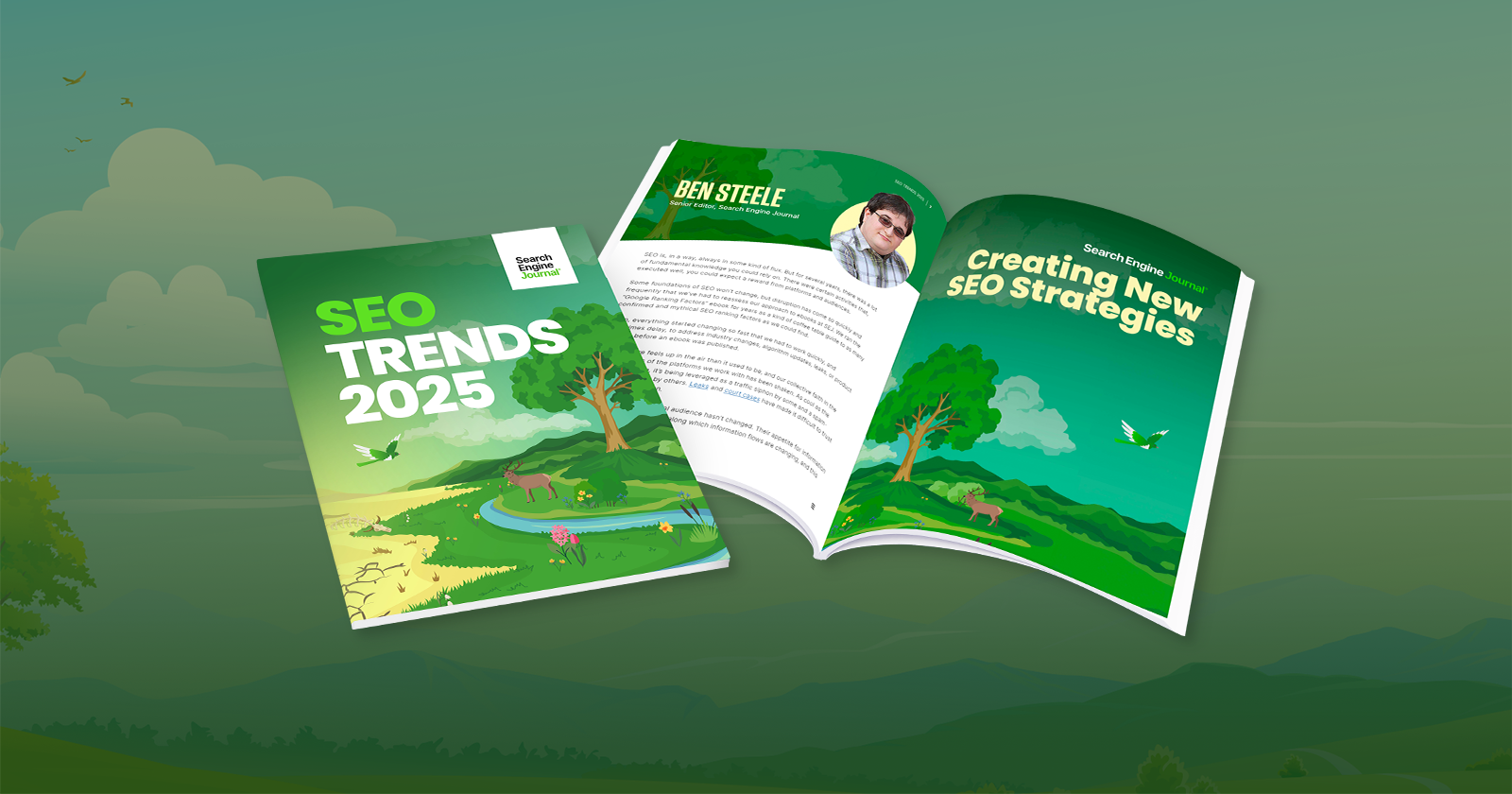If there’s one thing that became clear throughout 2024, it’s that SEO volatility isn’t temporary.
Working with less traffic is the new normal as Google and Microsoft forge ahead with AI integrated into their search engines.
Sustained Changes In Search
The meaning of the word “search engine” seems to be changing, too.
Some audiences use social media platforms, such as TikTok, like search engines, and complete the same kinds of informational and transactional journeys.
Google’s business practices have been under heightened scrutiny this year. Trials and leaks have revealed information about its algorithms and business models.
At the same time, many users and publishers have drawn attention to declining search results quality.
Doing SEO is tough right now.
Google’s rules and guidelines don’t seem to be applied evenly, with spammy tactics working out just fine if you’re big enough and legitimate smaller websites getting pushed out.
We’re all wrestling with the fact that lower traffic is just a thing now.
And yet, the vibe from many of the contributors to this year’s SEO Trends ebook is hopeful.
What are the reasons for excitement and hope in such a difficult time?
The thing about user dissatisfaction is that they look for new avenues and platforms. Changing audience behavior means new opportunities.
And Google’s troubles in the courts could open up room for new, competitive platforms to gain market share. Google is still the dominant force in search, but in the coming years, there may be shifts in platforms as well as audiences.
This year’s contributors are:
- Katie Morton, Editor-in-Chief, Search Engine Journal.
- Mordy Oberstein, Head of SEO Brand, Wix.
- Helen Pollitt, Head of SEO, Getty Images.
- Matt G. Southern, Senior News Writer, Search Engine Journal.
- Dan Taylor, Partner, SALT.agency.
- Andrea Volpini, CEO, WordLift.
Strategy-Focused Insights
This year’s questions focus on the big picture: how to approach SEO, given all the developments and disruptions.
Instead of focusing on an individual technology or event, we asked the contributors to discuss how they think about the definition and effectiveness of SEO and its many strategies and tactics.
Here are the questions we asked:
Creating New SEO Strategies
The desire for information isn’t going away, but users are changing how they seek information.
In the past, SEO pros answered questions in order to lure in users. That might still be the case, but people are finding answers outside of the SERP (or staying in the SERP) for answers rather than going to websites.
Is that model broken completely, or is there still something to gain from it?
Alternatively, is there a more direct way for SEO professionals to find users that doesn’t involve pumping information onto the internet?
Is there a completely new way of doing things in SEO, or do we need to work within the wreckage that we have?
Are there other channels that you recommend for user acquisition strategy? How can SEO pros effectively integrate these new channels into their overall approach?
Keeping On Top Of Developing Trends & Technologies
What are the trends and technologies that SEO professionals should be aware of and/or using?
What skills and knowledge do SEO professionals need to develop to thrive in the current search and marketing environment?
Are there any predictions you would like to make?
Preparing For 2025
We feel there should always be an open question so that the contributors can talk about whatever is most pressing on their minds without specific prompting.
So, question three was a “free space” – an opportunity to talk about whatever they wanted.
As usual, the contributors don’t disappoint with their insightful thoughts, both to the prompted questions and to the open invitation.
Going into 2025, a lot is still up in the air, and the state of Google Search doesn’t seem likely to improve quickly.
The expert contributors to SEJ’s SEO Trends ebook have plenty to say about the direction of search and how to build agile, resilient SEO strategies in a tumultuous business climate.
Featured Image: Paulo Bobita/Search Engine Journal

